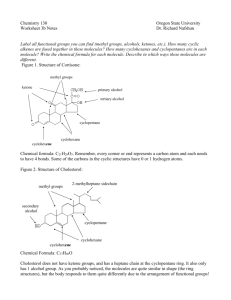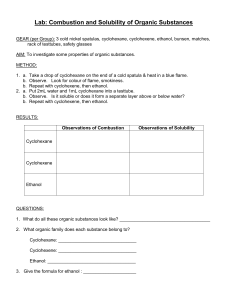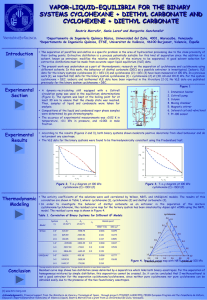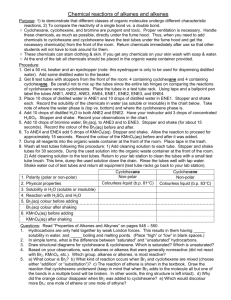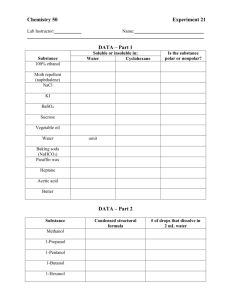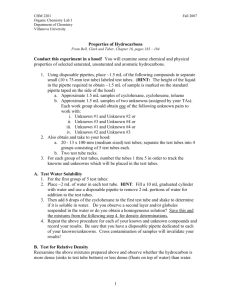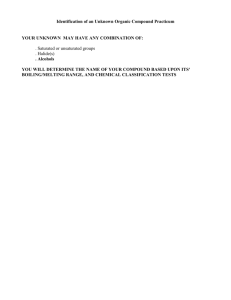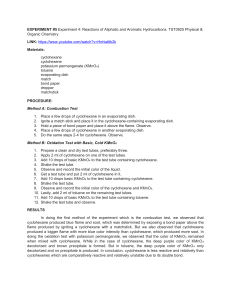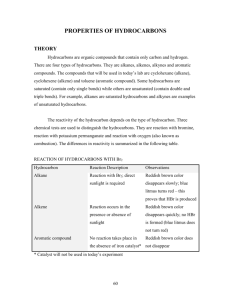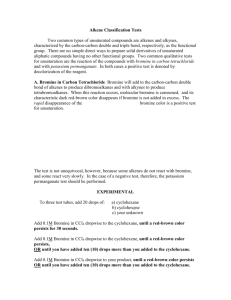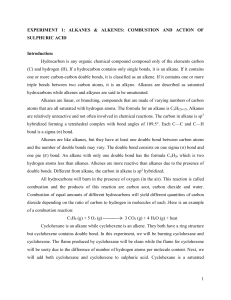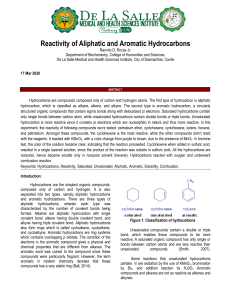Some reactions of hydrocarbons
advertisement
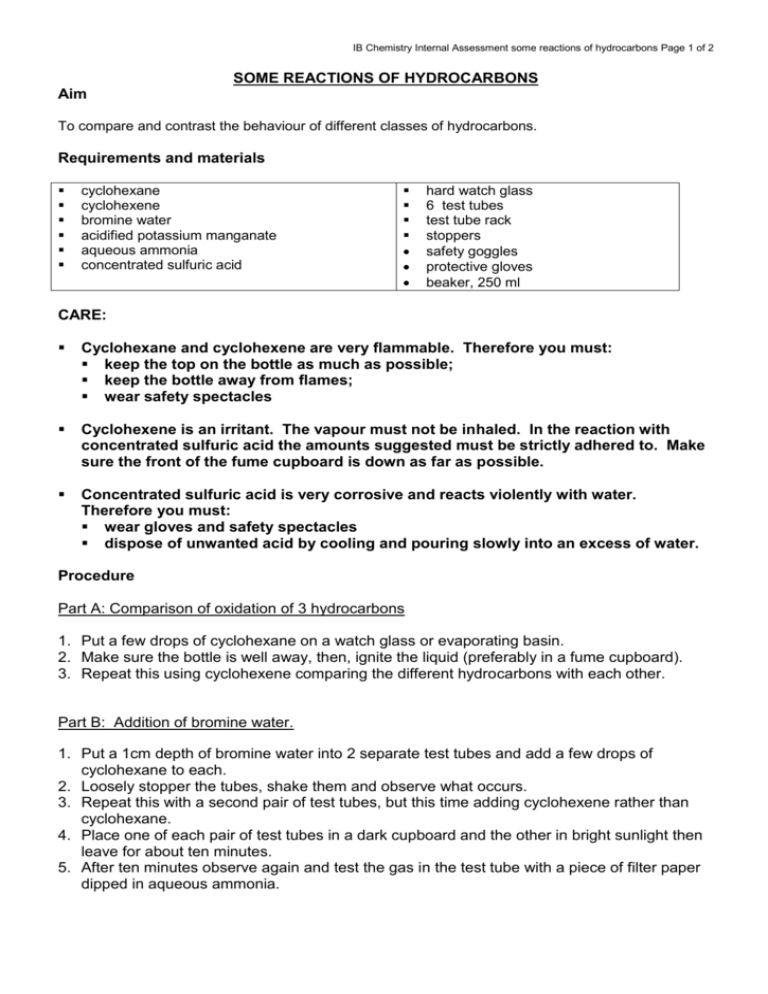
IB Chemistry Internal Assessment some reactions of hydrocarbons Page 1 of 2 SOME REACTIONS OF HYDROCARBONS Aim To compare and contrast the behaviour of different classes of hydrocarbons. Requirements and materials cyclohexane cyclohexene bromine water acidified potassium manganate aqueous ammonia concentrated sulfuric acid hard watch glass 6 test tubes test tube rack stoppers safety goggles protective gloves beaker, 250 ml CARE: Cyclohexane and cyclohexene are very flammable. Therefore you must: keep the top on the bottle as much as possible; keep the bottle away from flames; wear safety spectacles Cyclohexene is an irritant. The vapour must not be inhaled. In the reaction with concentrated sulfuric acid the amounts suggested must be strictly adhered to. Make sure the front of the fume cupboard is down as far as possible. Concentrated sulfuric acid is very corrosive and reacts violently with water. Therefore you must: wear gloves and safety spectacles dispose of unwanted acid by cooling and pouring slowly into an excess of water. Procedure Part A: Comparison of oxidation of 3 hydrocarbons 1. Put a few drops of cyclohexane on a watch glass or evaporating basin. 2. Make sure the bottle is well away, then, ignite the liquid (preferably in a fume cupboard). 3. Repeat this using cyclohexene comparing the different hydrocarbons with each other. Part B: Addition of bromine water. 1. Put a 1cm depth of bromine water into 2 separate test tubes and add a few drops of cyclohexane to each. 2. Loosely stopper the tubes, shake them and observe what occurs. 3. Repeat this with a second pair of test tubes, but this time adding cyclohexene rather than cyclohexane. 4. Place one of each pair of test tubes in a dark cupboard and the other in bright sunlight then leave for about ten minutes. 5. After ten minutes observe again and test the gas in the test tube with a piece of filter paper dipped in aqueous ammonia. IB Chemistry Internal Assessment some reactions of hydrocarbons Page 2 of 2 Part C: Addition of potassium manganate. 1. Put a 1 cm depth of potassium permanganate into a test tube and add a few drops of cyclohexane and shake. 2. Repeat with the cyclohexene. Part D: Reaction of concentrated sulfuric acid 1. 2. 3. 4. 5. 6. 7. Place a test tube rack inside the fume cupboard. Pour into the test tube approximately 1 ml of concentrated sulfuric acid. Pour into the test tube approximately 1 ml of cyclohexane. Stopper and remove the bottle of cyclohexane to a safe place, away from flames. Make the necessary observations. Dispose of this solution by adding it to a beaker of water. Repeat with cyclohexene. Data collection Decide which observations to make and design your own results table to record these observations.
